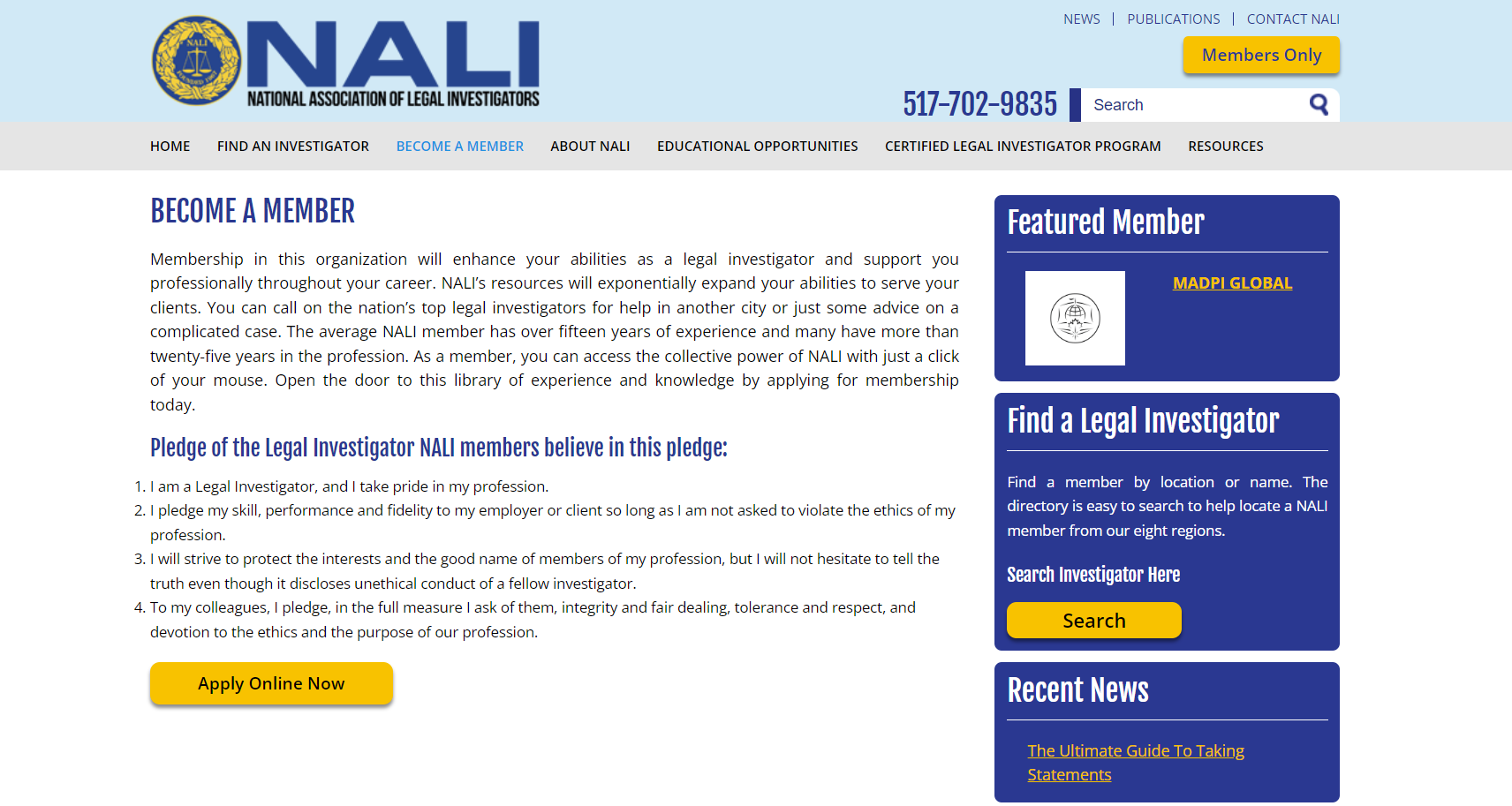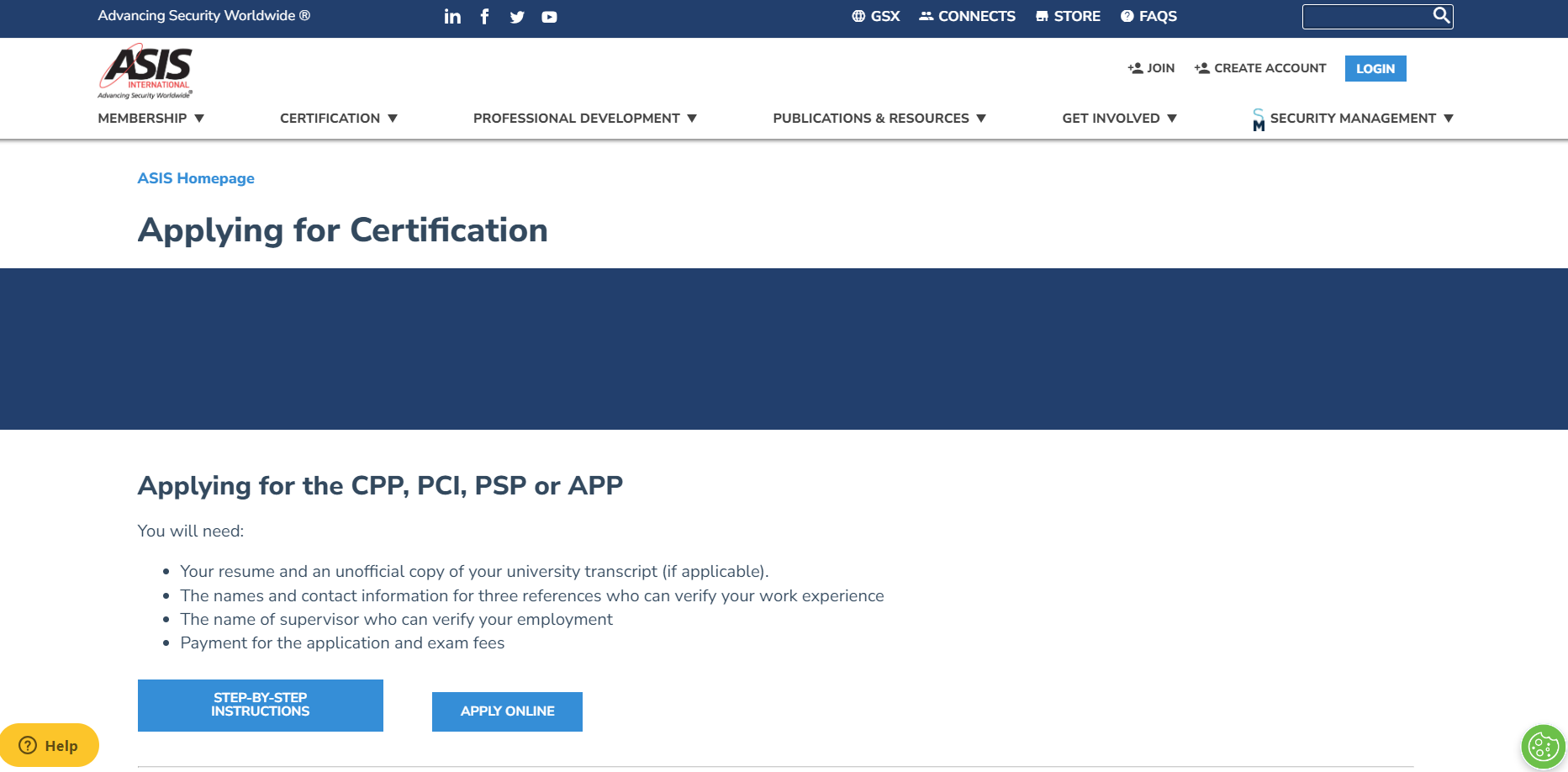
Suppose you’ve always been intrigued by the world of investigations and have a knack for unraveling mysteries. In that case, a career as a private investigator might be the perfect fit for you in Arizona. Private investigators play a crucial role in assisting individuals, businesses, and even law enforcement agencies in gathering information, uncovering facts, and solving cases. In addition to learning the ins and outs of investigation techniques, it is important to understand the legal aspects of running your own private investigation business.
Establishing an LLC in Arizona is popular for many private investigators as it provides legal protection and facilitates smooth business operations. This article will outline the steps you need to take to Become a Licensed Private Investigator in Arizona.
Webinarcare Editorial Team will help you gain knowledge through thorough research and market study. Before becoming a private investigator in Arizona, all the steps in this article must guide you.
On this page, you’ll learn about the following:
What is a Private investigator?
A private investigator in Arizona is a professional who conducts investigations, gathers information, and performs surveillance for individuals, businesses, and legal professionals. In Arizona, private investigators must be licensed by the Arizona Department of Public Safety Licensing Unit to operate within Arizona legally. They often work on various cases, including civil matters, insurance fraud, background checks, infidelity, missing persons, etc. These professionals use their skills and expertise to collect evidence, analyze information, and provide their clients with valuable insights to help them make informed decisions or resolve disputes.
Embarking on a journey to become a private investigator in Arizona is like entering a maze of possibilities where every corner holds a potential clue. As you uncover the secrets tucked away in the shadows, remember to secure your own path by learning how to start an LLC in Arizona. Establishing a legal entity shields you from liabilities and empowers you to navigate the investigative landscape with professionalism.
– WEBINARCARE EDITORIAL TEAM
How to Become a Private Investigator in Arizona
Suppose you’re considering becoming a private investigator in Arizona. In that case, it’s essential to understand the steps and requirements involved in obtaining your license and starting your professional journey. This step-by-step guide will walk you through becoming a private investigator in Arizona.
Step 1: Research The Requirements
Each state has its own set of requirements and regulations for becoming a licensed private investigator. The agency responsible for regulating private investigators in Arizona is the Arizona Department of Public Safety Licensing Unit. Familiarizing yourself with the specific requirements for obtaining a private investigator license in Arizona is important.
Some common requirements for obtaining a PI license in Arizona include:
- Age: Arizona requires individuals to be 18 or 21 to apply for a Private Investigator license.
- Citizenship: Applicants must be U.S. citizens or legal residents.
- Education: Arizona requires a high school diploma or GED, while others may require a degree in criminal justice or a related field.
- Experience: Arizona requires years of experience in law enforcement, security, or other related fields.
- Background Check: Applicants will likely need to pass a background check, which may include fingerprinting and a criminal history check.
- Licensing Exam: Arizona requires applicants to pass a licensing exam that tests their knowledge of state laws, regulations, and general investigative techniques.
Becoming a private investigator is ideal if you want to start an LLC for your security company in Arizona. We recommend these LLC Formation Services in Arizona if you plan to form one.
Step 2: Obtain Education and Experience
As mentioned earlier, Arizona requires a certain level of education and experience to become a licensed private investigator. There are several educational paths you can pursue to prepare for a career as a private investigator, including:
- Degree Programs: Some Arizona colleges and universities offer associate’s or bachelor’s degree programs in criminal justice, forensic science, or a related field. These programs typically cover criminal law, investigation techniques, and crime scene analysis.
- Certificate Programs: Arizona community colleges and vocational schools offer certificate programs in private investigation or a related field. These programs generally take less time to complete than a degree program and focus on specific skills and knowledge needed for a career in private investigation.
- Online Courses: Numerous online courses and training programs cover various aspects of private investigation. These courses can be a convenient and affordable way to gain knowledge and skills in the field.
In addition to formal education, gaining practical experience in a related field can be invaluable for aspiring private investigators. Some possible avenues for gaining relevant experience include:
- Law Enforcement: Working in law enforcement, such as a police officer or detective, can provide valuable experience in investigation and surveillance techniques.
- Military Service: Military personnel, particularly those in intelligence or security roles, often develop skills that can be transferred to a career as a private investigator.
- Security Work: Working as a security guard or in corporate security can provide experience in surveillance, risk assessment, and incident response.
- Legal Field: Paralegals and legal assistants often conduct research and investigations for attorneys, which can provide a foundation for a career as a PI.
Here is the breakdown of the education and practical experience in becoming a licensed private investigator in Arizona.
| Education | Experience |
| Degree Programs | Law Enforcement |
| Certificate Programs | Military Service |
| Online Courses | Security Work |
| Legal Field |
Step 3: Apply For a Private Investigator License
Once you have met the education and experience requirements in Arizona, you can begin applying for a private investigator license in Arizona. This typically involves applying to the Arizona Department of Public Safety Licensing Unit and any required documentation, fees, and proof of insurance.
In Arizona, the application process may include the following steps:
1. Complete the Private Investigator License Application
Obtain and complete the PI license application from the Arizona Department of Public Safety Licensing Unit. Be sure to provide accurate and complete information, as any discrepancies could result in delays or denial of your application.
2. Submit the Required Documentation
Along with your completed application, you must submit various documents, such as proof of education and experience, a copy of your driver’s license, and any required affidavits or forms.
3. Pay Application and Licensing Fees
There may be fees associated with the application and licensing process in Arizona. Be sure to include these fees when submitting your application. The usual fee for the application and licensing process for the Arizona private investigator costs $400 (for individual), $500 (for agency).
4. Obtain Liability Insurance
Arizona doesn’t require obtaining liability insurance when you become an Arizona private investigator, but it is safe for you to have it.
5. Pass the Licensing Exam
If required in Arizona, you must pass a licensing exam that tests your knowledge of state laws, regulations, and general investigative techniques.
6. Background Check and Fingerprinting
As part of the application process, you will likely need to undergo a background check and submit fingerprints to the Arizona Department of Public Safety Licensing Unit.
Step 4: Maintain Your Private Investigator License
Once you have obtained your private investigator license in Arizona, it is important to maintain your license in good standing. This may involve completing continuing education requirements, renewing your license periodically, and adhering to any regulations and ethical standards set forth by the Arizona Department of Public Safety Licensing Unit. When you become a fully-fledged Arizona private investigator, it is best to consider other certifications for your career development.
Below are two professional credential options that private investigators can pursue.
Certified Legal Investigator
The Certified Legal Investigator (CLI)® is a professional certification program offered by the National Association of Legal Investigators (NALI). It is designed for private investigators who specialize in legal investigations and wish to demonstrate proficiency and expertise in the field.

To become a Certified Legal Investigator (CLI)®, candidates must meet certain eligibility requirements, including having a minimum of five years of investigative experience and a certain number of those years working on legal investigations. Candidates must also pass a written examination that covers topics such as legal ethics, civil and criminal law, evidence collection and preservation, and witness interviews.
By earning the CLI certification, investigators show they have high competency and professionalism in legal investigations and adhere to the highest standards of ethics and integrity. The legal community recognizes the certification and can help investigators gain credibility and recognition in the field.
You can visit NALI’s CLI requirement page for the most up-to-date certification requirements.
Professional Certified Investigator (PCI)®
The Professional Certified Investigator (PCI)® is a professional certification program offered by ASIS International, a global association for security management professionals. The certification is designed for private investigators and security professionals conducting corporate, government, or non-profit investigations.

To become a Professional Certified Investigator (PCI)®, candidates must meet certain eligibility requirements, including having a minimum of five years of investigative experience and a certain number of those years working in a supervisory or management role. Candidates must also pass a written examination that covers topics such as investigation planning, case management, evidence collection and preservation, and legal and ethical considerations.
By earning the PCI certification, investigators show they have high competency and professionalism when conducting investigations and adhere to the highest standards of ethics and integrity. The certification is recognized by employers, clients, and industry peers and can help investigators advance their careers and gain credibility in the field.
You can visit ASIS’ eligibility requirements page for the most up-to-date information regarding PCI certification requirements.
Recommended: Begin your journey to become a private investigator with the first bold step by using Legalzoom’s LLC formation services. When you start an LLC with Legalzoom, you’re not just making a business transaction, you’re carving out a future in the security industry. Even making your own security company, it is best to hire an LLC services. That’s why we recommend –
– LegalZoom – ($0 + State Filling Fees)
How Much Does a Private Investigator Make?
The salary of a private investigator varies based on experience, location, and type of work. According to the Bureau of Labor Statistics, the average annual salary of a private investigator in the United States is $50,510.
FAQs
Also Read
- Become a Private Investigator in Alabama
- Become a Private Investigator in Alaska
- Become a Private Investigator in Arizona
- Become a Private Investigator in Arkansas
- Become a Private Investigator in California
- Become a Private Investigator in Colorado
- Become a Private Investigator in Connecticut
- Become a Private Investigator in DC
- Become a Private Investigator in Delaware
- Become a Private Investigator in Florida
- Become a Private Investigator in Georgia
- Become a Private Investigator in Hawaii
- Become a Private Investigator in Idaho
- Become a Private Investigator in Illinois
- Become a Private Investigator in Indiana
- Become a Private Investigator in Iowa
- Become a Private Investigator in Kansas
- Become a Private Investigator in Kentucky
- Become a Private Investigator in Louisiana
- Become a Private Investigator in Maine
- Become a Private Investigator in Maryland
- Become a Private Investigator in Massachusetts
- Become a Private Investigator in Michigan
- Become a Private Investigator in Minnesota
- Become a Private Investigator in Mississippi
- Become a Private Investigator in Missouri
- Become a Private Investigator in Montana
- Become a Private Investigator in Nebraska
- Become a Private Investigator in Nevada
- Become a Private Investigator in New Hampshire
- Become a Private Investigator in New Jersey
- Become a Private Investigator in New Mexico
- Become a Private Investigator in New York
- Become a Private Investigator in North Carolina
- Become a Private Investigator in North Dakota
- Become a Private Investigator in Ohio
- Become a Private Investigator in Oklahoma
- Become a Private Investigator in Oregon
- Become a Private Investigator in Pennsylvania
- Become a Private Investigator in Rhode Island
- Become a Private Investigator in South Carolina
- Become a Private Investigator in South Dakota
- Become a Private Investigator in Tennessee
- Become a Private Investigator in Texas
- Become a Private Investigator in Utah
- Become a Private Investigator in Vermont
- Become a Private Investigator in Virginia
- Become a Private Investigator in Washington
- Become a Private Investigator in West Virginia
- Become a Private Investigator in Wisconsin
- Become a Private Investigator in Wyoming
How to Save Money While Starting a Becoming Private Investigator in Arizona
One of the first steps to consider when starting a private investigation business is setting a budget. It is crucial to determine how much money you are willing to invest in your new venture and allocate funds accordingly. By being mindful of your expenses and budgeting carefully, you can avoid overspending and stay within your financial constraints.
Another way to save money while starting a private investigation business in Arizona is by networking with other professionals in the industry. Building relationships with experienced private investigators can provide you with valuable advice and insights that can help you avoid costly mistakes. Additionally, networking can lead to partnerships and collaborations that can help you save money on certain expenses, such as marketing and advertising.
Furthermore, it is essential to invest in essential tools and equipment wisely. While it can be tempting to splurge on state-of-the-art technology and gadgets, it is important to prioritize essential tools that will help you conduct efficient and effective investigations. By carefully researching and comparing prices, you can find quality equipment at affordable prices, saving you money in the long run.
In addition to investing in the necessary tools, it is also important to consider your transportation expenses. As a private investigator, you will likely spend a significant amount of time traveling to and from various locations. To save money on transportation, consider carpooling, using public transportation, or investing in a fuel-efficient vehicle. By minimizing your transportation expenses, you can allocate more funds towards the growth of your business.
When it comes to marketing and promoting your private investigation services, it is crucial to be strategic and creative. Instead of expensive advertising campaigns, consider using low-cost marketing strategies such as social media, word-of-mouth referrals, and networking events. By leveraging these cost-effective marketing tactics, you can reach a wider audience without breaking the bank.
Lastly, it is important to prioritize ongoing education and training as a private investigator. By staying informed about the latest industry trends and advancements, you can enhance your skills and knowledge, making you a more competitive and successful investigator. However, instead of enrolling in expensive training programs, consider exploring free or affordable options such as online courses, workshops, and seminars.
In conclusion, starting a private investigation business in Arizona can be a fulfilling and lucrative endeavor. By being mindful of your expenses, networking with industry professionals, investing in essential tools wisely, minimizing transportation costs, using cost-effective marketing strategies, and prioritizing ongoing education and training, you can save money while building a successful and sustainable private investigation business. With careful planning and financial discipline, you can overcome the initial financial hurdles and establish yourself as a reputable and thriving private investigator in Arizona.
Conclusion
Becoming a licensed private investigator in Arizona requires meeting specific education and experience requirements, passing a licensing exam, and obtaining a PI license from the Arizona Department of Public Safety Licensing Unit. By following the steps outlined in this article, you can be well on your way to a rewarding career as a private investigator in Arizona.

